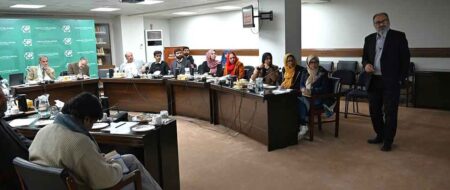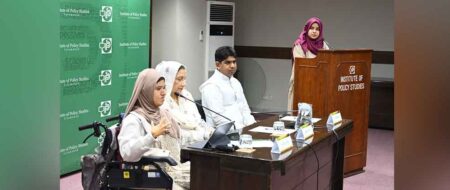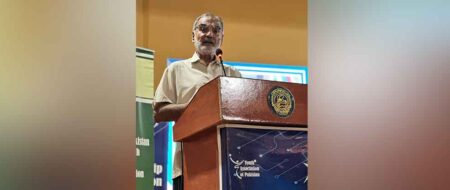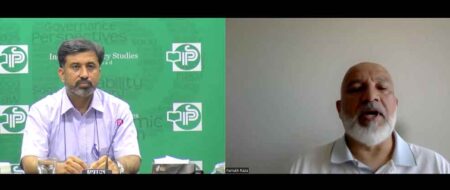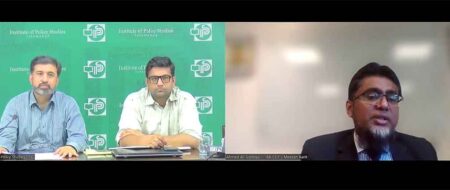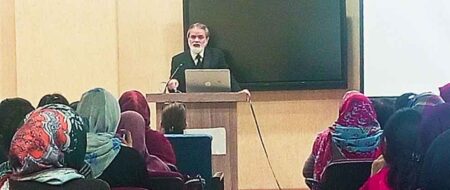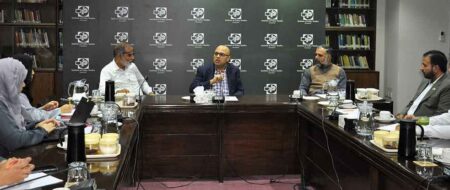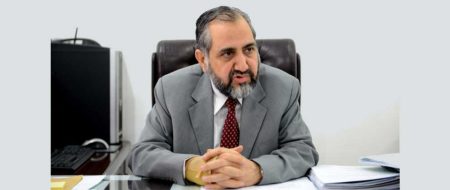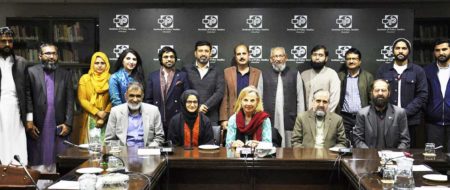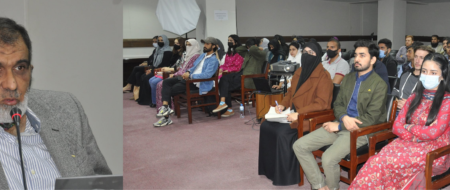‘Muslim activism, Muslim thoughts, and its roots’ – A talk by Dr Dietrich Reetz
Muslims and Islamic perspectives in the West have been reduced to a security narrative whereas the socio-political narrative, i.e. Muslims as political and social beings and Muslim activities as social activities, needs to be normalized. The socio-political narrative refers to identifying the activities of Muslims based on a social and/or political agenda, not merely on religious grounds even if done in the name of Islam.
These notions were shared by Dr Dietrich Reetz, a research scholar of international relations with particular emphasis on South Asia, conflict studies, and Islam in the non-Arab world, including Central Asia, South East Asia, and Europe, who was visiting IPS on November 4, 2022, to deliver a talk on Muslim activism, Muslim thoughts, and its roots.
This kind of upsurge in Muslim activities on religious grounds has been a part of identity politics, Dr Reetz emphasized. These activities, if seen by applying the sociology of religion, could not be reduced to a single denomination but have different perspectives within, having roots in the colonial period in South Asia.
Dr Reetz further stated that contemporary groups engaged in activism in the name of Islam cannot be understood without tracing their roots in identity politics as they are aiming to claim a place in society and public space, which is not just reserved for seculars and westerners but for all.
He contradicted the idea that there is polarization between modernist and traditional Islamic narratives and stressed that, from political science and philosophical sense, Islam is the most secular religion that explains governance and state-related issues through Qur’anic verses and hadiths. He maintained that these explanations apply to various aspects of social and political life as it was founded by a social and political leader.
However, from the same political science perspective, the modern or contemporary practice of Islam, in its entirety, is not the same as its early practice because the implementations of Islam are done selectively. Moreover, all contemporary orientations claim to be following Salafism. It is because they all follow one stream of Islam. Therefore, Islamic modernists need not be separated from Islamic traditionalists.
A particular development, however, has been the rise of a new generation of preachers in the globalization and social media age, he underlined. In their attempt to reduce the knowledge of Islamic rituals and practices to a modern, simple, and unified understanding relating to how to deal with religious identity, they are bringing the activities under Salafism in the modern sense.
This reflects a trend that is seen in the Western world as well, along with the non-Arab Muslim world, where young Muslims tend to see themselves as separate from the early orthodox religion of Islam under the Salafi movement. Though turned into a network, it has a direct connection to Islamic principles. And they are more pushed into these ideological struggles with increased globalization. This also reflects a discourse of contemporary times which can also be found in the structure of other ideologies like the left, in which the leftists are still searching for what it means to be left.
Lastly, Dr Reetz maintained that the Islamic world has also integrated into the western world through activism. Talking about Muslims and German integration, he underscored that both have tried to connect on intellectual or philosophical and political tracks as well. The older intellectual connection can be seen as Muslim thoughts were integrated into the writings of German writers and poets like Goethe, he concluded.



